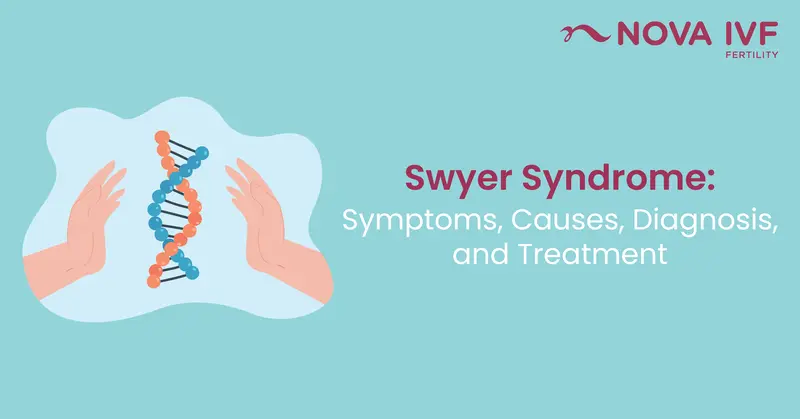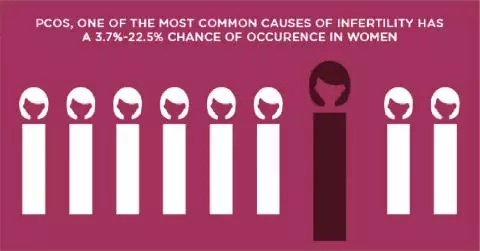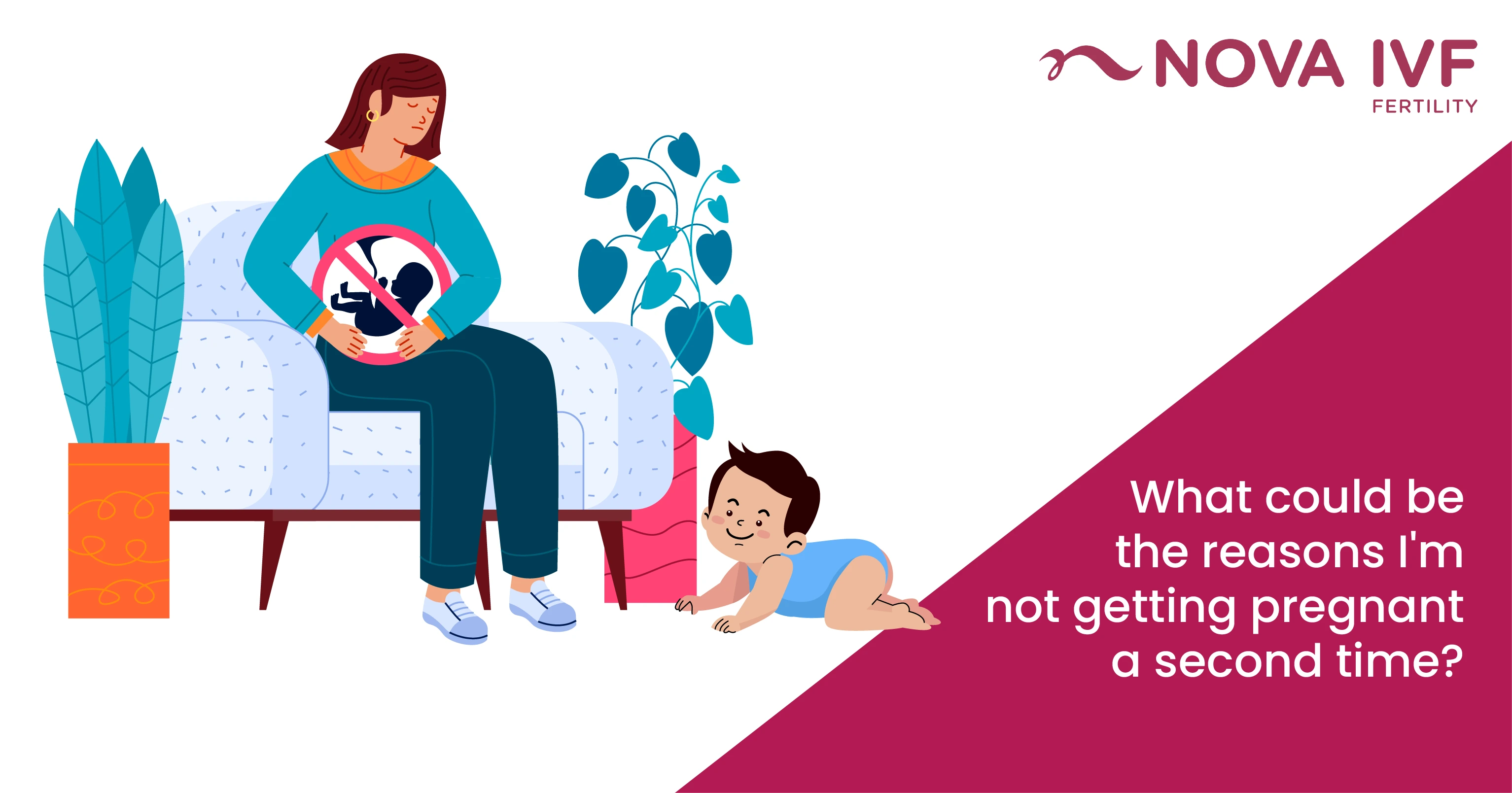Swyer Syndrome

Swyer syndrome is a rare genetic disease that causes an individual to have female genitals yet has male or XY as their sex determining chromosomes. According to the National Organization for Rare Disorders (NORD), about 1 in every 80,000 infants are born with Swyer syndrome. This is a complete guide to help you understand the Swyer syndrome symptoms, treatment options, management strategies, and diagnosis.
Overview of Swyer Syndrome
Swyer syndrome or XY gonadal dysgenesis is a rare disease that affects the sexual development of an individual. Human beings, under normal conditions, possess 46 chromosomes out of which two determine the gender of a child - namely the X and Y chromosomes. The females possess the two of the X chromosomes (XX) and males possess one each of the X and Y chromosomes (XY).
Individuals affected by the Swyer syndrome symptoms possess the XY combination but have female reproductive structure. The external genitalia are similar to that of a woman and the fallopian tubes and uterus are normally formed as well. However, in place of the ovaries, they have underdeveloped gonad tissues or scar tissues known as streak gonads. The absence of the ovaries prevents puberty unless treated.
Swyer syndrome is a disorder where sex glands—ovaries or testes—fail to develop normally. The Swyer syndrome is a disorder of sex development (DSD) that comprises any chromosomal, anatomic or gonadal abnormalities in sex development. A woman with Swyer syndrome has XY chromosome pattern (which is generally found in males) instead of the normal XX chromosome pattern that they generally possess.
Even though affected by this syndrome, women look like other normal females and also have a fully functional uterus, vagina, and fallopian tubes. The only organ that they lack is a fully developed ovary (aplasia condition), and instead, they have gonadal streaks or functionless fibrous tissues in place of it. Women with Swyer syndrome do not produce sex hormones and do not attain puberty. The main reason for this disease is the mutation of chromosomes.
Swyer Syndrome Symptoms
In most cases, external symptoms may not be visible until early teens. There are a few external symptoms that can be related to Swyer syndrome, including the following:
- Primary amenorrhea (absence of menstruation cycles) during early teens that is caused due to the lack of estrogen
- A smaller uterus and slightly enlarged clitoris
- Lack of physical change in the body during teenage
A 2019 study revealed that females with seemingly normal physical appearance can also have Swyer syndrome. The study highlights the case of a 17-year-old female with no menstrual cycles but estradiol (a type of estrogen) levels within the range of a typical female of reproductive age. The female was accurately diagnosed only after proper medical examination and testing.
Swyer Syndrome Causes and Genetic Aspects
Swyer syndrome is characterised by the failure of the sex gonads and is classified as a disorder of sex development (DSD). The exact causes of this syndrome remain unknown. Mutation of a single gene(s) or disruption of cells is believed to be the probable cause of Swyer syndrome. Genes are a sequence of DNA that determines a character or trait in the body, including the gender differences. Mutation of the genes can also lead to the improper formation of the reproductive system.
Some of the probable causes are mentioned below:
- Mutation in the SRY gene: In 15% of victims of this syndrome, mutation of SRY gene has been discovered. Mutation leads to the production of a non-functional protein which leads to the development of gonads in place of ovaries.
- Mutations in the MAP3K1 gene: About 18% of the affected individuals possess the mutated MPA3K1 gene. This gene prompts the body to make a protein that helps control the processes of determining sexual characteristics before birth.
- Mutations in the DHH and NR5A1: This type of mutation has also been identified as the causes of Swyer syndrome in some cases. The DHH gene signals the body to produce protein that forms tissues while the NR5A1 gene prompts the body to produce the steroidogenic factor (SF1) which has a role in sex differentiation and production of sex hormones This protein controls the activity of sex hormones and gender differentiation. The mutation causes in the DHH and NR5A1 genes affect the process of sexual differentiation, preventing affected individuals with a typically male karyotype from developing testes and causing them to develop a uterus and fallopian tubes.
- Rarer mutation: Some of the affected personals have mutation in the Wnt-4 (WNT4) gene, CBX2, GATA4 and WWOX genes. Researchers believe that there are more unidentified genes mutations that may be associated with this syndrome.
Swyer Syndrome Diagnosis
Swyer syndrome is a congenital condition, which means that individuals are born with it, but it is rarely diagnosed at birth as there are no evident symptoms of this condition. Generally, Swyer syndrome diagnosis is done when an affected individual reaches the age of puberty when they are tested for amenorrhea or delayed puberty.
To diagnose Swyer syndrome, the healthcare provider will get a thorough medical history, perform a clinical evaluation, identify Swyer syndrome characteristics (such as absence of menstruation), and recommend certain tests. Characteristics associated with physical appearance, such as the lack of enlarged breasts, pubic hair, axillary hair, and menstrual cycles despite increased height during puberty, also help in the diagnosis of Swyer syndrome.
Chromosomal analysis is essential to confirm the diagnosis of Swyer syndrome; in some cases, genetic analysis may also be performed to identify the specific gene mutation associated with the affected individual’s condition.
Swyer Syndrome Treatment and Management
Treatment for Swyer syndrome requires a collective effort of various specialists who can comprehensively plan an appropriate treatment for affected girls. Treatment varies based on the individual and nature of the syndrome. Some cases require surgical procedures to repair the external genitalia while hormone replacement therapy (HRT) remains the common Swyer syndrome treatment option.
Genetic counseling also plays a huge role in helping patients and their families to cope up with the situation emotionally. Apart from this, there are certain specific treatments and therapies given to girls with Swyer syndrome.
- Hormone replacement therapy: This method is applied to induce puberty (in a child) and restore hormone balance in the body. HRT induces menstrual cycles and physical developments such as uterine growth and breast enlargement. Most importantly, hormone replacement therapy helps to prevent osteoporosis (bone thinning or bone loss). This is because females affected by this condition have a high risk of decreased bone mineral density, which is one of the hidden Swyer syndrome characteristics. Estrogen and progesterone are administered to the girls to prevent complications of this syndrome and to prepare the uterus for future pregnancy.
- Gonadectomy: The gonad tissues often lead to benign or cancerous tumours and are usually removed with surgical procedures as early as possible. Women affected will remain infertile due to the lack of ovaries but can get pregnant with the help of a donated egg. Thus, doctors suggest regular monitoring of individuals affected by Swyer syndrome for potential complications Like gonadal tumours.
The streak gonads are generally removed surgically to prevent the development of the gonadal tumour.
Swyer Syndrome Pregnancy
Women having Swyer syndrome can undergo medically assisted reproduction such as in vitro fertilisation (IVF) and intracytoplasmic sperm injection (ICSI) to bear children, in case they are diagnosed infertile. They can get pregnant from donated oocytes that are stored using cryopreservation.
IVF is a beacon of hope for individuals affected by Swyer syndrome. This procedure combined with advanced assisted reproductive technologies (ARTs) like preimplantation genetic testing (PGT), such individuals can reduce the chances of their baby having a genetic disorder.
Psychological and Social implications of Swyer Syndrome
Individuals affected by Swyer syndrome can have troubles with their body image and identity. Early diagnosis of the condition is helpful in preventing life-threatening complications, but it also exposes the affected child to deal with a difficult situation. Such individuals may develop social anxiety and depression in addition to dealing with low self-esteem.
The psychological impact of living with Swyer syndrome is not limited to troubled body image, it also effects the individual’s overall quality of life as they cannot conceive naturally and start a family. Seeking counselling or therapy in such cases is extremely important in addition to a strong support system in the form of loved ones to help the affected individual cope with their rare genetic disorder and lead a relatively normal life. Additionally, fertility clinics like Nova IVF Fertility, who have empathetic team of doctors can them become parents in case they wish to start a family later in life.
Research and advances
Research is ongoing on Swyer syndrome to better understand the condition and develop ways to manage and treat this rare genetic disorder to help the affected individuals lead a relatively normal and healthy life.
A 2007 study revealed that individuals affected by Swyer syndrome have a high risk of dysgerminoma, which is a cancer that begins in the germ cells. Thus, gonadectomy is recommended to all individuals affected with Swyer syndrome as a preventive measure in addition to karyotype in all adolescents with amenorrhea.
Research findings also suggest that early Swyer syndrome diagnosis is helpful in achieving optimal bone mineral density and inducing and maintaining typical pubertal development of the affected child. Females affected by Swyer syndrome can also conceive successfully with IVF and give birth to their child. Research has found successful cases of pregnancy and live birth in woman who have pre-existing chronic hypertension among other successful cases as well.
 Infertility Counselling
Infertility Counselling Female Infertility Treatment
Female Infertility Treatment Andrology Treatment
Andrology Treatment Fertility Enhancing Surgeries - Female
Fertility Enhancing Surgeries - Female Fertility Enhancing Surgeries - Male
Fertility Enhancing Surgeries - Male Endoscopy Treatment
Endoscopy Treatment IUI Treatment
IUI Treatment IVF Treatment
IVF Treatment ICSI Treatment
ICSI Treatment Advanced IVF Solutions
Advanced IVF Solutions Embryology
Embryology Vitrification Egg, Embryo, Sperm Freezing
Vitrification Egg, Embryo, Sperm Freezing Preimplantation Genetic Testing (PGT)
Preimplantation Genetic Testing (PGT) Donation Program Embryo / Egg / Sperm
Donation Program Embryo / Egg / Sperm Self-cycleTM IVF
Self-cycleTM IVF

 Self-cycleTM IVF
Self-cycleTM IVF










